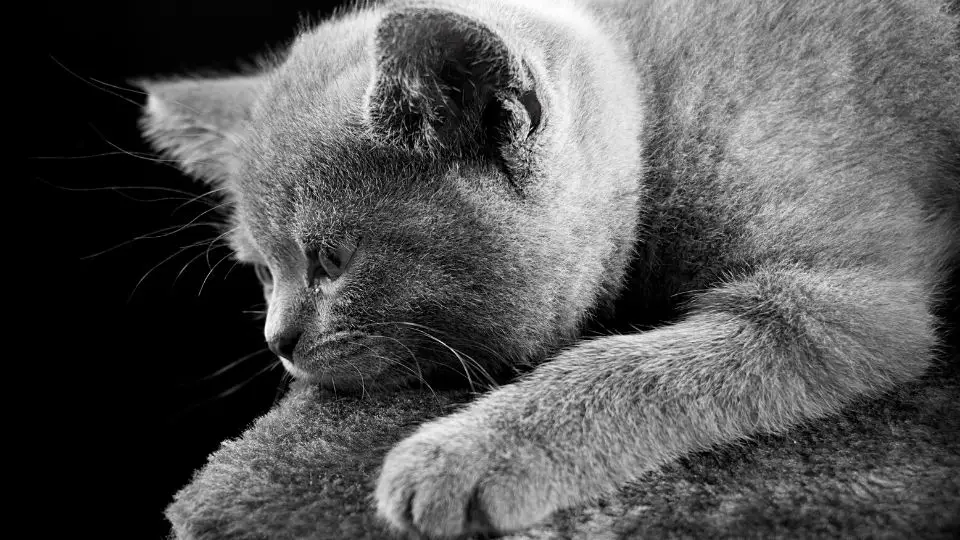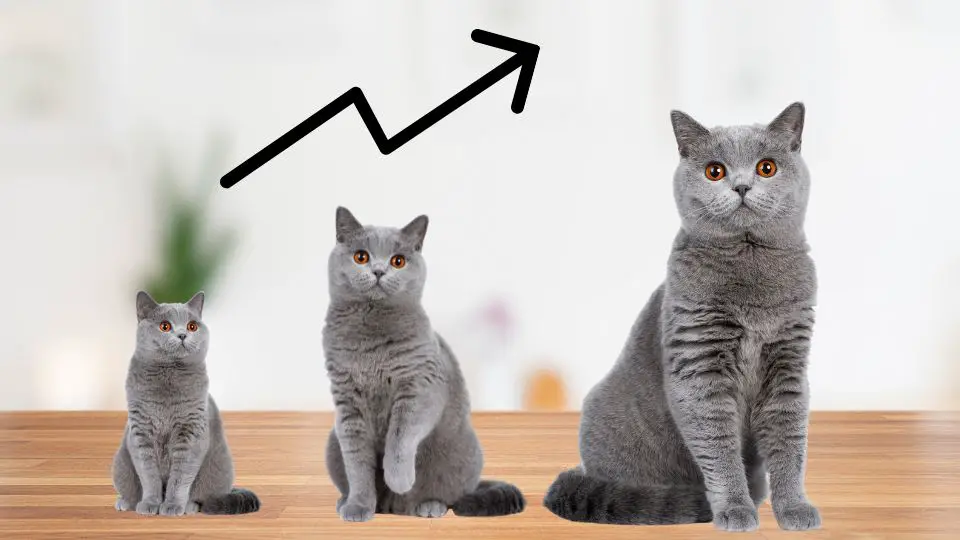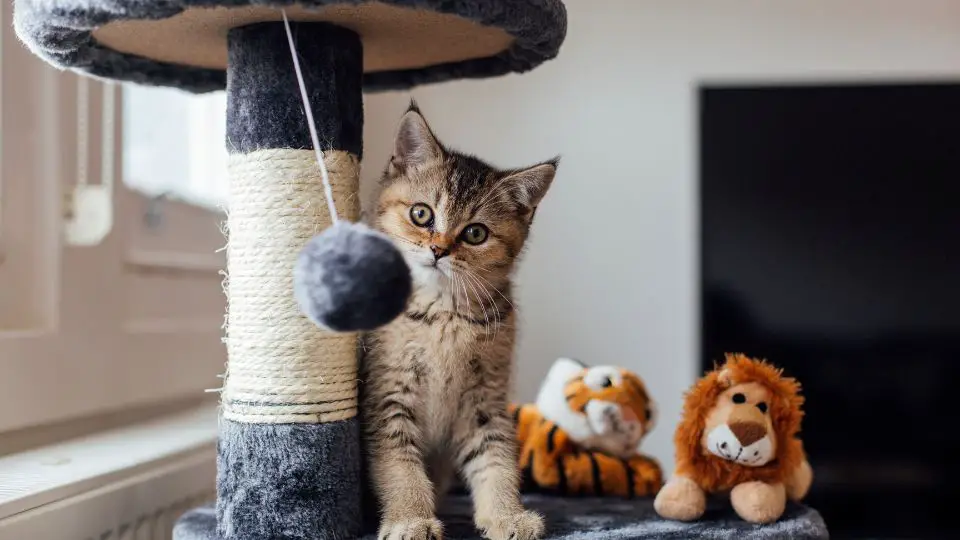British Shorthair cats are a popular breed known for their laid-back demeanor and adorable looks. However, like all cats, they can be prone to certain health problems.
One of these health issues is respiratory problems, which can range from minor to severe. British Shorthair can have a variety of respiratory issues, including asthma, allergies, and infections. These conditions can make breathing difficult and cause coughing, sneezing, and wheezing.
In this article, we’ll take a look at this breathing problems and provide important information about the causes, symptoms, and treatment options for respiratory problems in this beloved pet.
Common respiratory problems in British Shorthair cats
British Shorthair cats can be prone to certain respiratory problems, especially those related to their unique facial structure. Brachycephalic airway syndrome, upper respiratory infections, and asthma are some common respiratory problems that may affect British Shorthair cats.
However, not all British Shorthairs will experience these issues, and there are steps owners can take to prevent or manage respiratory problems in their cats.
Here are the most common respiratory problems in British Shorthair cats:
Brachycephalic airway syndrome
This condition is characterized by an obstruction of the airways due to the cat’s short snout and flat face. This can lead to difficulty breathing, snoring, and an increased risk of heat stroke. Brachycephalic airway syndrome is more common in cats with shorter snouts, such as the British Shorthair.
Upper respiratory infections
Upper respiratory infections (URIs) are common in cats and can be caused by a variety of viruses or bacteria. Symptoms of URIs in cats can include sneezing, coughing, runny nose, and eye discharge. British Shorthair cats may be more prone to URIs due to their shorter nasal passages.
Asthma
Asthma is a respiratory condition that can cause inflammation and narrowing of the airways, leading to difficulty breathing. Symptoms of asthma in cats can include coughing, wheezing, and labored breathing. While any cat breed can develop asthma, it is more commonly seen in cats with flat faces like the British Shorthair.
Causes of respiratory problems in British Shorthair cats
Respiratory problems in British Shorthair cats can be caused by a variety of factors, including genetics, obesity, and environmental factors.
While some factors, such as genetics, are outside your control, there are steps that can be taken to reduce the risk of respiratory problems in British Shorthair cats. This includes maintaining a healthy weight through a nutritious diet and regular exercise, reducing exposure to environmental irritants, and seeking veterinary care at the first sign of respiratory problems.
Here’s a closer look at these potential causes:
Genetics
The unique facial structure of British Shorthair cats, characterized by a short snout and flat face, can make them more susceptible to respiratory problems. This is because their shorter nasal passages can make it more difficult for them to breathe properly. Additionally, certain genetic conditions, such as brachycephalic airway syndrome, may also contribute to respiratory problems.
Obesity
Just like in humans, obesity can be a risk factor for respiratory problems in your little pet. Excess weight can put strain on a cat’s respiratory system, making it more difficult for them to breathe properly. British Shorthair cats are known for their love of food and can be prone to obesity if not given a healthy diet and regular exercise.
Environmental factors
Exposure to environmental irritants, such as cigarette smoke, dust, or other allergens, can also contribute to respiratory problems in cats. This can cause inflammation in the airways, leading to symptoms such as coughing, sneezing, and difficulty breathing.
Signs and symptoms of respiratory problems in British Shorthair cats
Respiratory problems can be serious health issues for cats, and you should be aware of the signs and symptoms of respiratory problems in your small pet.
Here are some common signs and symptoms to look out for:
- Wheezing: Wheezing is a high-pitched whistling sound that can occur when air is forced through narrowed airways. Wheezing is often a sign of inflammation in the airways and can be a symptom of respiratory problems in British Shorthair cats.
- Coughing: Coughing is a reflex action that occurs when something irritates the airways. In cats, coughing can be a sign of respiratory infections or other underlying health issues.
- Sneezing: Sneezing is a common symptom of respiratory infections in cats and can be caused by viruses, bacteria, or allergens.
- Difficulty breathing: Difficulty breathing is a serious symptom that requires immediate veterinary attention. This can manifest as rapid or labored breathing, or as breathing with an open mouth.
- Blue gums or tongue: If your British Shorthair cat’s gums or tongue appear blue or purple, this can be a sign of oxygen deprivation and is a medical emergency.
If you notice any of these signs or symptoms in your British Shorthair cat, it’s important to seek veterinary care as soon as possible. Early detection and treatment of respiratory problems can help improve your cat’s quality of life and prevent further health complications.
Treatment options for respiratory problems in British Shorthair cats
Respiratory problems in British Shorthair cats can be treated using a variety of methods, depending on the underlying cause and severity of the condition.
Here are some common treatment options:
Medications
Depending on the specific respiratory problem, your veterinarian may prescribe medications such as antibiotics, bronchodilators, or steroids to help manage symptoms and improve breathing.
Weight management
If your British Shorthair cat is overweight, weight loss may be recommended to reduce strain on the respiratory system. Your veterinarian can help you develop a safe and effective weight loss plan for your cat.
Environmental modifications
If your cat’s respiratory problems are caused by environmental irritants, such as cigarette smoke or dust, making changes to your cat’s environment can help reduce symptoms. This may include using air purifiers, minimizing exposure to irritants, and keeping your cat’s living space clean and well-ventilated.
Surgery
In some cases, surgery may be necessary to correct structural abnormalities in the airways that are causing respiratory problems.
Prevention of respiratory problems in British Shorthair cats
Prevention of respiratory problems is always preferable to treatment, and there are steps that owners can take to reduce the risk of respiratory problems in British Shorthair cats.
Regular veterinary check-ups
Regular veterinary check-ups can help catch respiratory problems early, before they become serious. Routine check-ups should include a thorough respiratory exam, and owners should be vigilant for any signs of respiratory distress in their cats.
Maintaining a healthy weight
Obesity can put strain on a cat’s respiratory system, making it more difficult for them to breathe. Maintaining a healthy weight through a nutritious diet and regular exercise can help reduce the risk of respiratory problems.
Here are some tips for maintaining a healthy diet on a British Shorthair:
- Choose high-quality cat food: Look for cat food that is formulated specifically for the nutritional needs of adult cats. High-quality cat food should list meat as the primary ingredient, and should provide balanced nutrition.
- Portion control: British Shorthair cats are prone to obesity, so it’s important to feed them the appropriate portion sizes. Consult with your veterinarian to determine the appropriate portion sizes for your cat, and avoid overfeeding or free-feeding.
- Avoid human food: Human food, especially foods high in fat, sugar, or salt, can be harmful to cats. Avoid giving your cat table scraps or human food, and stick to cat-specific treats in moderation.
- Provide fresh water: Make sure your cat always has access to fresh, clean water. Water should be changed daily, and water bowls should be washed and sanitized regularly.
- Consider wet food: Wet food can be a good option for British Shorthair cats, as it provides extra moisture to help prevent urinary tract problems. However, wet food should be fed in moderation and should not replace dry food entirely.
Environmental considerations
Exposure to environmental irritants, such as cigarette smoke or dust, can increase the risk of respiratory problems. It’s important to keep your cat’s living space clean and well-ventilated, and to minimize exposure to irritants whenever possible.
Conclusion
In conclusion, British Shorthair cats are a wonderful breed that can make excellent pets for the right owners. However, like all animals, they are prone to certain health issues, including respiratory problems.
You have to be aware of the signs and symptoms of respiratory problems, as well as the preventative measures they can take to keep their cats healthy. With proper care and attention, British Shorthair cats can live long, happy lives free from respiratory problems, and continue to bring joy and companionship to their owners.







